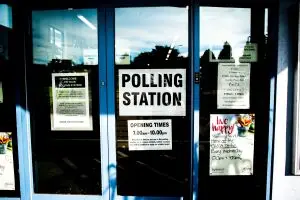On Wednesday 6 March, Chancellor Jeremy Hunt is set to deliver the Spring Budget, outlining the Government’s stance on taxation, spending, borrowing, and debt. This fiscal event provides updates from the Office for Budget Responsibility (OBR), an independent body monitoring public finances.
Positioned as potentially the last significant fiscal event before the General Election, the Budget is traditionally an opportunity for the sitting Chancellor to propose popular policies. However, Chancellor Jeremy Hunt will have to exercise caution amid the UK’s technical recession and recent IMF warnings against tax cuts.
Tax
Hunt has already scaled back plans due to tighter fiscal headroom. Forecasts suggest a focus on personal giveaways rather than measures for businesses. Potential tax-cutting packages, akin to the Autumn Statement, may include increasing personal allowance, raising the basic tax band, reducing the basic rate, or further cutting national insurance. The Times reports a likely reduction in national insurance.[1] Jeremy Hunt is also expected to extend the 5p cut in fuel duty for another year. [2] RSM also expects that the Chancellor will build on his previous announcements regarding tax simplification. [3] To fund these cuts, Hunt may consider scrapping or scaling back the ‘non-dom’ tax rule. Changes to inheritance tax seem unlikely. Reports suggest a possible 0.75 per cent increase in public spending instead of 1 per cent, saving £5bn.[4]
Businesses
Corporation tax cuts may not take centre stage, with a focus on taxes directly impacting voters. Potential announcements could relate to investment zones and R&D schemes.[5] Employment tax simplification, including employee share schemes and allowances, may be discussed.
Expect the focus to be on clarifying existing Green policies, not introducing new ones. Recent campaigns highlight concerns about the costs of achieving net zero, with discussions on potential rollbacks like scrapping the ‘boiler tax’ and a VAT cut on energy-saving materials.[6] The Spring Budget may unveil details about the UK’s Carbon Border Trading Adjustment Mechanism (CBAM), including consultations on reporting and charging structures. Possible measures include supporting Carbon Capture Utilisation and Storage (CCUS) for gas fields and reusing fossil fuel infrastructure. Energy UK calls for VAT relief on more low-carbon technologies and improvements in home energy efficiency. E3G urges the Government to exempt homes from the ‘heat pump’ tax and incentivise landlords to upgrade properties in the private rented sector.[7]
Health
No major health announcements are expected, but a new levy on vaping, higher for products with more nicotine, and a one-off rise in tobacco duty may be introduced. Funding for the expansion of early support hubs is also expected to be announced.[8]
Science and Technology
Chancellor Jeremy Hunt is set to announce a £360m Spring Budget package for R&D in manufacturing, life sciences, automotive, and aerospace. He has already announced £92m for expanding facilities in medicines and diagnostics, £7.5m for pharmaceutical manufacturing, £200m for zero-carbon aircraft tech, and £73m for automotive tech.[9] There are also calls for expanding R&D tax credit eligibility, more MHRA funding for clinical trials, and increasing R&D investment as a percentage of GDP. Along with calls for broadband reforms to prevent inflationary and anti-competitive measures, including measures against mid-contract and above-inflation rises.[10]
Transport and Infrastructure
Fuel is likely to be frozen, given its electoral sensitivity close to an upcoming election.[11] Expect announcements on double cab pick-ups (DCPUs), with the Government planning legislation in the next Finance Bill to maintain their classification as goods vehicles for tax purposes.[12] There are hopes the Budget will deliver certainty for Network North and there have been calls for a national strategy for rail network growth and affordable public transport. There have also been calls to remove VAT on new electric vehicles, increase investment in EV infrastructure, and introduce a tax on aviation fuel, aligning with Japan and the US.[13]
Culture, Media, and Sport
Despite some support in the Autumn Statement, sectors like British Independent Film are still grappling with challenges from the cost of living and the energy crisis, prompting calls for additional assistance. Chair of the Culture, Media, and Sport Committee, Caroline Dinenage MP, urged Chancellor Jeremy Hunt for ‘urgent action’ to support British Independent Film, particularly requesting enhanced tax relief for films in the £1m to £15m budget range.[14] However, there is uncertainty about whether the creative and cultural sectors will be prioritised in the upcoming budget.
Housing
Initial speculation about Stamp Duty relief and financial support for first-time buyers has been abandoned due to budget constraints.[15] There has been talk of a potential 1 per cent deposit for first-time buyers, but plans for a 99 per cent mortgage scheme seem unlikely in this budget. Calls for changes to ISAs may be addressed, including a possible increase in the Lifetime ISA threshold and a reduction in the penalty rate.[16]
Conclusion
Overall, the Chancellor has a challenging day ahead of him as he is tasked with promoting his party in what might be one of the final fiscal statements before the General Election. Striking a balance between appealing to voters, addressing economic concerns, and maintaining party unity is crucial, particularly with low poll ratings. Limited fiscal flexibility may hinder the fulfilment of promises, necessitating a focus on portraying the Conservatives as adept in economic management.
[1] The Times, ‘Jeremy Hunt plans national insurance cut and vape tax for the budget’, February 2024, Link
[2] The Daily Mail, ‘Everything expected to be in Jeremy Hunt’s Budget: Chancellor poised to make fresh cut to national insurance and freeze fuel duty while punishing vapers, smokers and non-doms… but could he also have an income tax rabbit in his red box?’, March 2024, Link
[3] RSM UK, ‘RSM UK: 2024 Spring Budget predictions’, February 2024, Link
[4] The Standard, ‘Chancellor Jeremy Hunt is looking for areas to cut as the spring budget nears’, February 2024, Link
[5] The Independent, ‘Will the UK get tax cuts in Jeremy Hunt’s 2024 spring Budget?’, March 2024, Link
[6] The Telegraph, ‘Boiler tax set to be scrapped’, March 2024, Link
[7] E3G, ‘Make clean heat accessible to all options for lowering heat pump running costs’, October 2023, Link
[8] BACP, ‘Additional funding announced for early support mental health hubs’, February 2024, Link
[9] City AM, ‘Spring Budget 2024: £360m research package to boost British manufacturing’, January 2024, Link
[10] Money Saving Expert, ‘Martin Lewis: Letter responding to the Chancellor on Lifetime ISAs, Child Benefit, Student Loans and mid-contract broadband & mobile prices rises’, January 2024, Link
[11] KPMG, ‘Spring Budget 2024: Paving the way for the general election’, February 2024, Link
[12] RSM UK, ‘Predictions Spring Budget 2024’, February 2024, Link
[13] RSM UK, ‘Predictions Spring Budget 2024’, February 2024, Link
[14]Committee for Culture, Media and Sport Committee, ‘Priorities for Spring Budget: Support for Independent British Film’, February 2024, Link
[15] The Times, ‘Jeremy Hunt plans national insurance cut and vape tax for the budget’, February 2024, Link
[16] Money Saving Expert, ‘Martin Lewis: Letter responding to the Chancellor on Lifetime ISAs, Child Benefit, Student Loans and mid-contract broadband & mobile prices rises’, February 2024, Link




